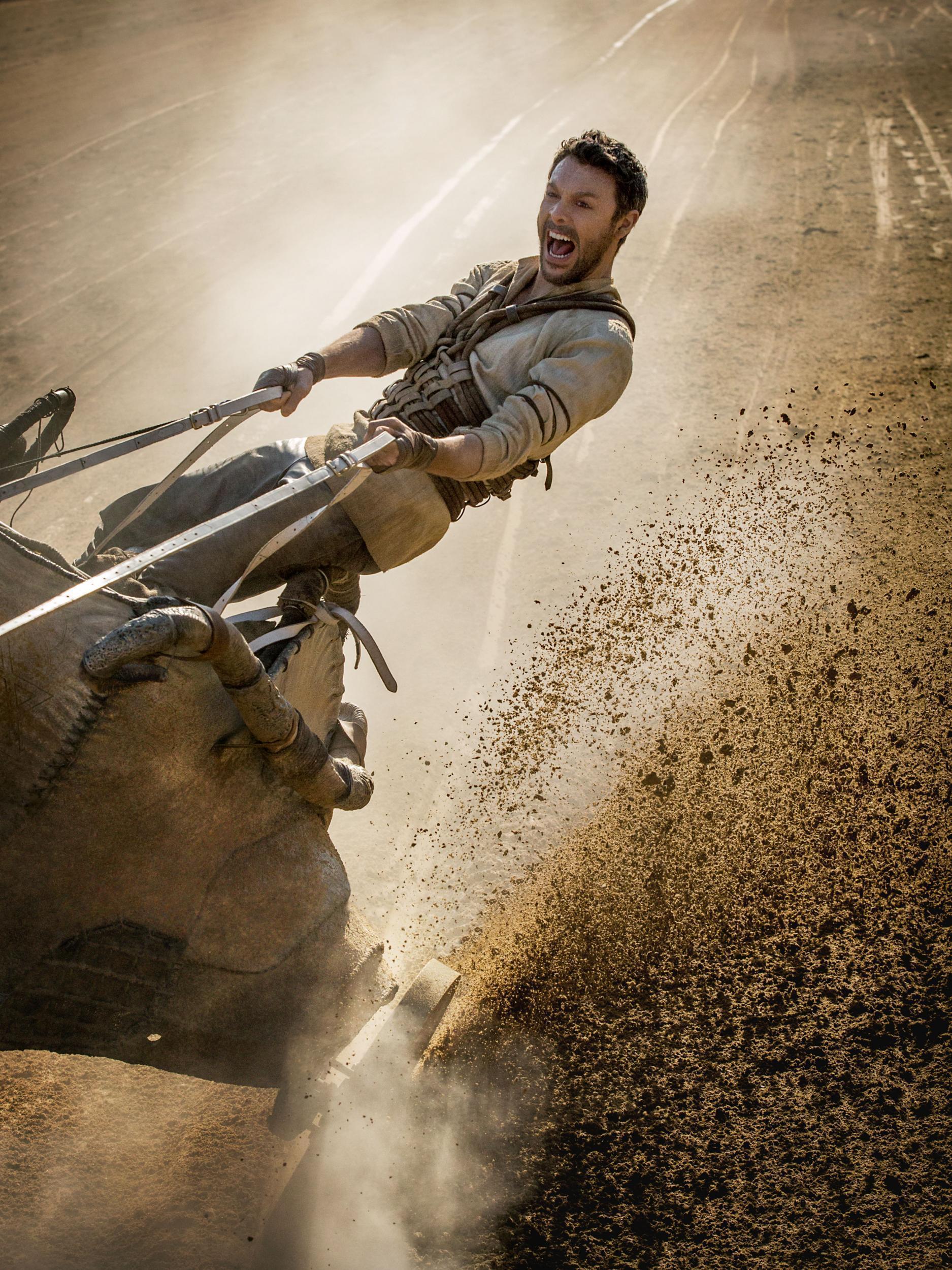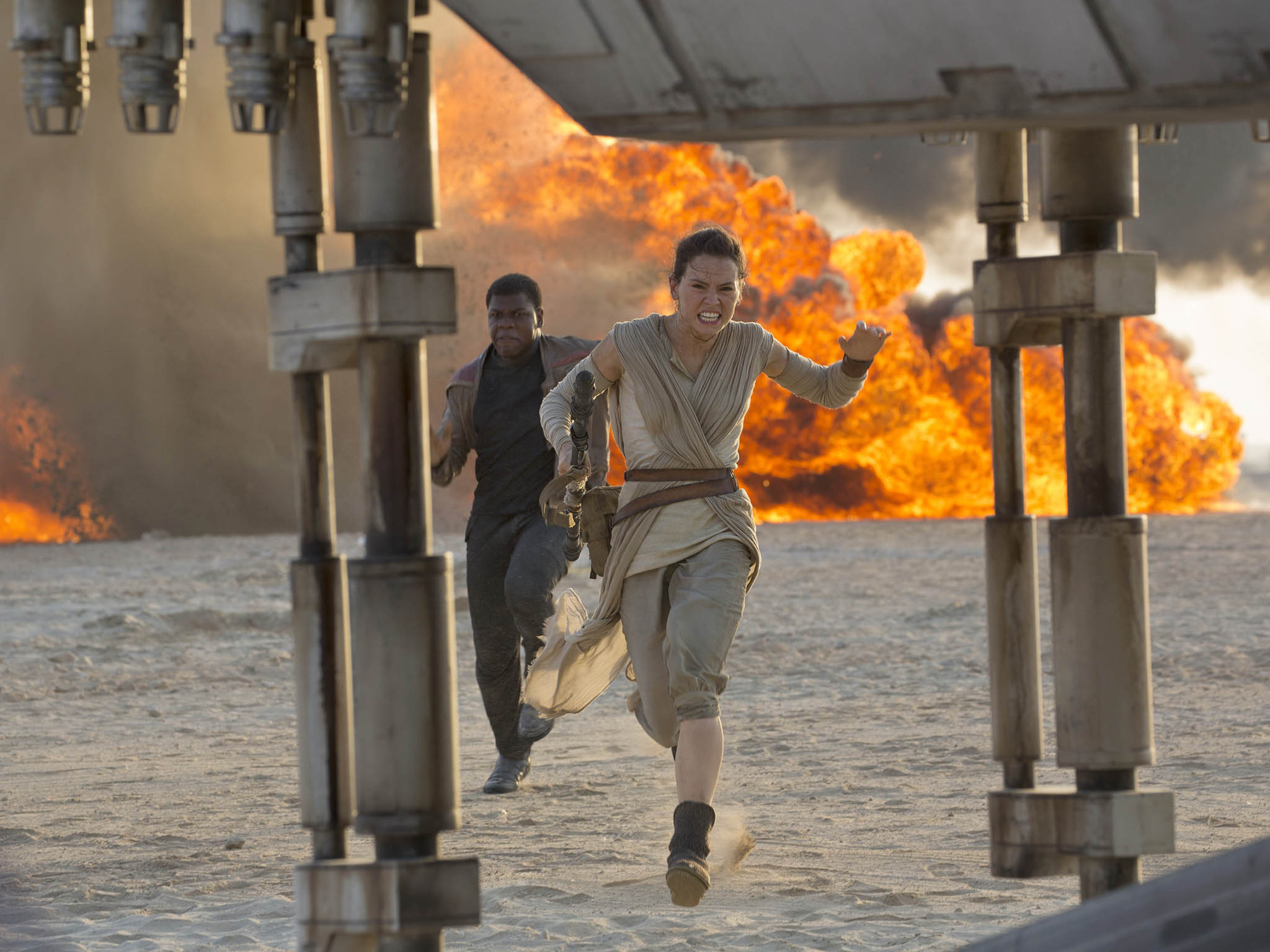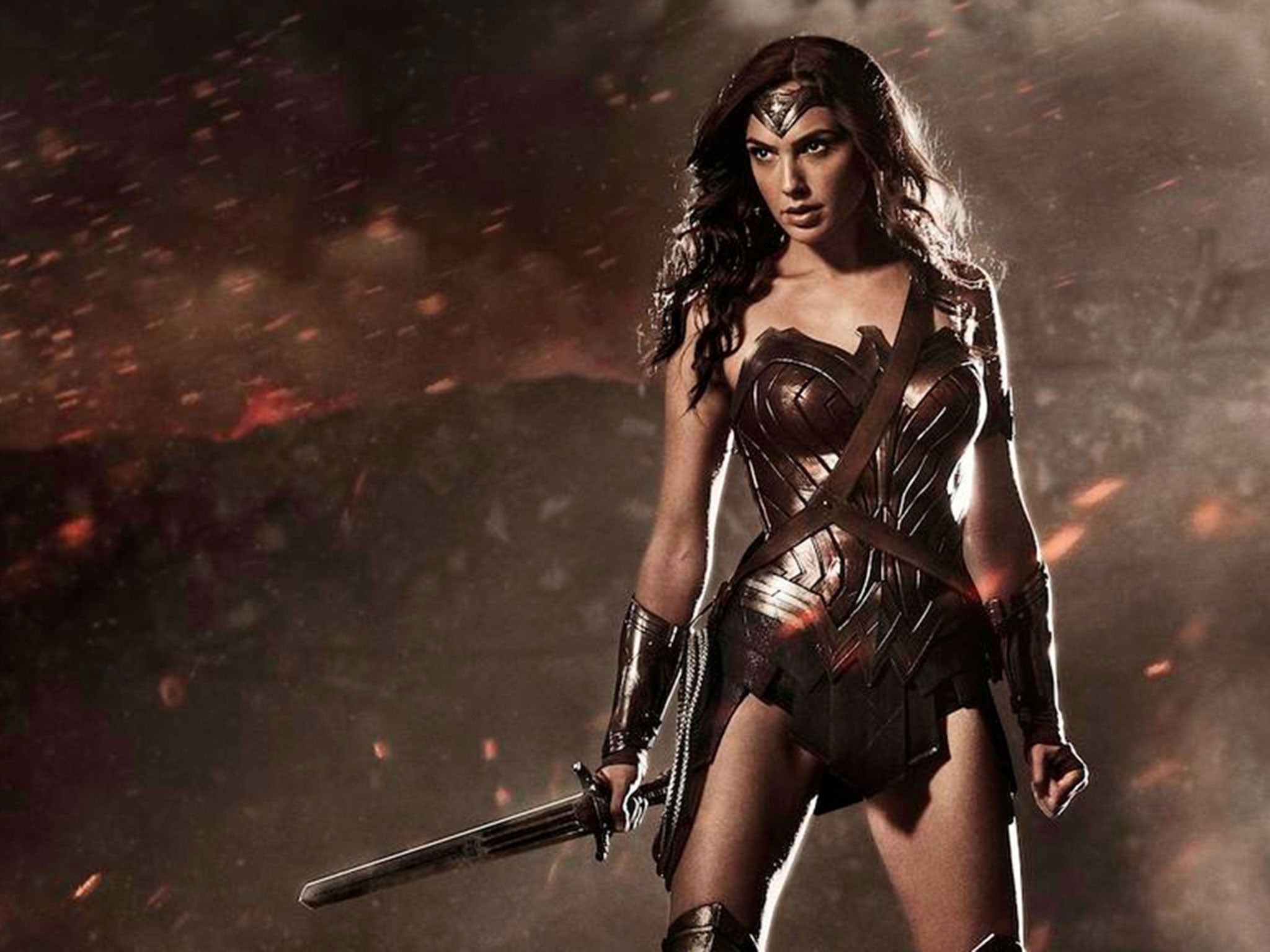Epic fail: why a new Ben-Hur can never be a truly epic movie
Modern movies need to blast into outer space or visit other worlds to truly transport us

Your support helps us to tell the story
From reproductive rights to climate change to Big Tech, The Independent is on the ground when the story is developing. Whether it's investigating the financials of Elon Musk's pro-Trump PAC or producing our latest documentary, 'The A Word', which shines a light on the American women fighting for reproductive rights, we know how important it is to parse out the facts from the messaging.
At such a critical moment in US history, we need reporters on the ground. Your donation allows us to keep sending journalists to speak to both sides of the story.
The Independent is trusted by Americans across the entire political spectrum. And unlike many other quality news outlets, we choose not to lock Americans out of our reporting and analysis with paywalls. We believe quality journalism should be available to everyone, paid for by those who can afford it.
Your support makes all the difference.The new Ben-Hur film, soon to be released, is described by Jack Huston, who plays Judah Ben-Hur, as “an epic in every sense of the word”.
For some younger audience members the term “epic” might mean that the film is going to be “great” or “awesome”. Others might think of the ancient mythological epic poems, such as the Odyssey or the Argonautica, the story of Jason and the Argonauts. And as classicist Kirsten Day has recently argued, to some the Western is seen as the modern incarnation of the ancient epic.
But generally the term tends to denote films set in the ancient world, true to the classical origins of epic, such as an earlier Ben-Hur (1959), starring Charlton Heston, or Stanley Kubrick’s Spartacus (1960). These films, with their large casts and long running time, have come to define the epic film genre.
An “epic” movie must satisfy certain audience expectations. There must be some distance set between the present day and the story presented on screen. There must be visual spectacle. And there must be a hero (in this case Judah Ben-Hur) whose journey both physical and spiritual is central to the film. This journey could take the form of a quest narrative – such as Jason’s voyage to find the golden fleece – or a narrative based on the wish for revenge, such as Maximus’s revenge for the death of his wife and child in Gladiator (2000).
It remains to be seen whether Ben-Hur hits all these notes. But whether it does or not, it will certainly not fulfil the demands of epic as it well as other, less traditional movies now can. I would argue – and this is coming from a classicist – that movies set in the ancient world can no longer adequately live up to the demands of the “epic”. Instead, we should look to films set in space as the true modern epic.
The epic poems of the classical period were primarily characterised by their sense of distance – they were set in a distant past and featured long journeys to the edge of the known world, where mortals could encounter gods and monsters. While films set in the ancient world replicate this sense of distance, those set in the future allow a sense of distance more appropriate to the 21st century in terms of both time and space. No longer do we consider a journey to Africa “epic”; one to Jupiter is certainly more impressive. The unknown realm of deep space is also a more appropriate location for the supernatural in modern times.
The “epic” genre also demands spectacle, and arguably films set in space also provide viewers with a more epic perspective than can be achieved in ancient-world films, particularly when viewed in IMAX 3D. We are treated to sweeping views of space, and witness such events as the destruction of planets in the Star Wars and Star Trek films.
There are also infinite possibilities for new landscapes and locations, such as the deserts of Jakku, the snowy landscape surrounding Starkiller Base and the forests of Takodana in Star Wars: The Force Awakens (2015).

The range of perspectives offered by the camera and CGI in the 21st century also have the potential to provide a greater epic quality than that provided in ancient epic films, with their widescreen battle scenes and views of the arena from above. The visually stunning Avatar (2009), for example, used 3D cinematography to make viewers feel as if they were actually running through the ferns in the forests of Pandora.
The other requirement of the epic – the hero’s journey – is an element that translates very easily into other landscapes and genres and is seen everywhere. Superhero films that focus on origin stories also follow this model. A good example would be Batman Begins (2005), where Bruce Wayne becomes Batman as a response to the death of his parents. The Wonder Woman film, to be released in 2017, also promises an origin story.
Many of the science fiction greats were directly influenced by ancient epic. When he wrote the original Star Wars film, George Lucas was influenced by the work of myth scholar Joseph Campbell’s work on the hero’s journey, based primarily on the epic of Gilgamesh. The hero’s journey is a staple part of the Star Wars narrative, whether of Luke Skywalker, Anakin Skywalker, or, as in the most recent film, Rey, the scavenger turned freedom fighter who shows natural ability in wielding a light sabre.
What Rey and Wonder Woman demonstrate is that in order to be modern, the epic must be able to accommodate a range of heroes – both male and female. Female heroes are absent from the ancient epic poems, where the heroes were men, helped or hindered by often ambiguous female characters such as Circe and Medea.
They are also absent in epics set in the ancient world from the 1950s and 1960s, where female characters tend to conform to the stereotypes of good woman or evil temptress. Westerns or films such as The Godfather, which some consider epic, also struggle to accommodate women. But a modern, futuristic epic, divorced from classical history, provides heroic possibilities for women as well as for men.

So if we are looking for 21st-century films that best embody the spirit of the ancient mythological epics such as the Odyssey, we should look to science fiction, rather than films set in the ancient world, such as Ben-Hur. The epic genre requires distance, both of time and space. The ancient world epics feature journeys that occurred deep in the past to mythical places. Today, this same sense of distance can only be provided by the future and the vast unknown that is outer space.
So although I am looking forward to seeing the new Ben-Hur film – and the 1959 film remains one of my favourite films of all time – I expect that we shall have to wait for the next Star Wars film, released next year, in order to see something truly “epic”.
First published on theconversation.com
Join our commenting forum
Join thought-provoking conversations, follow other Independent readers and see their replies
Comments